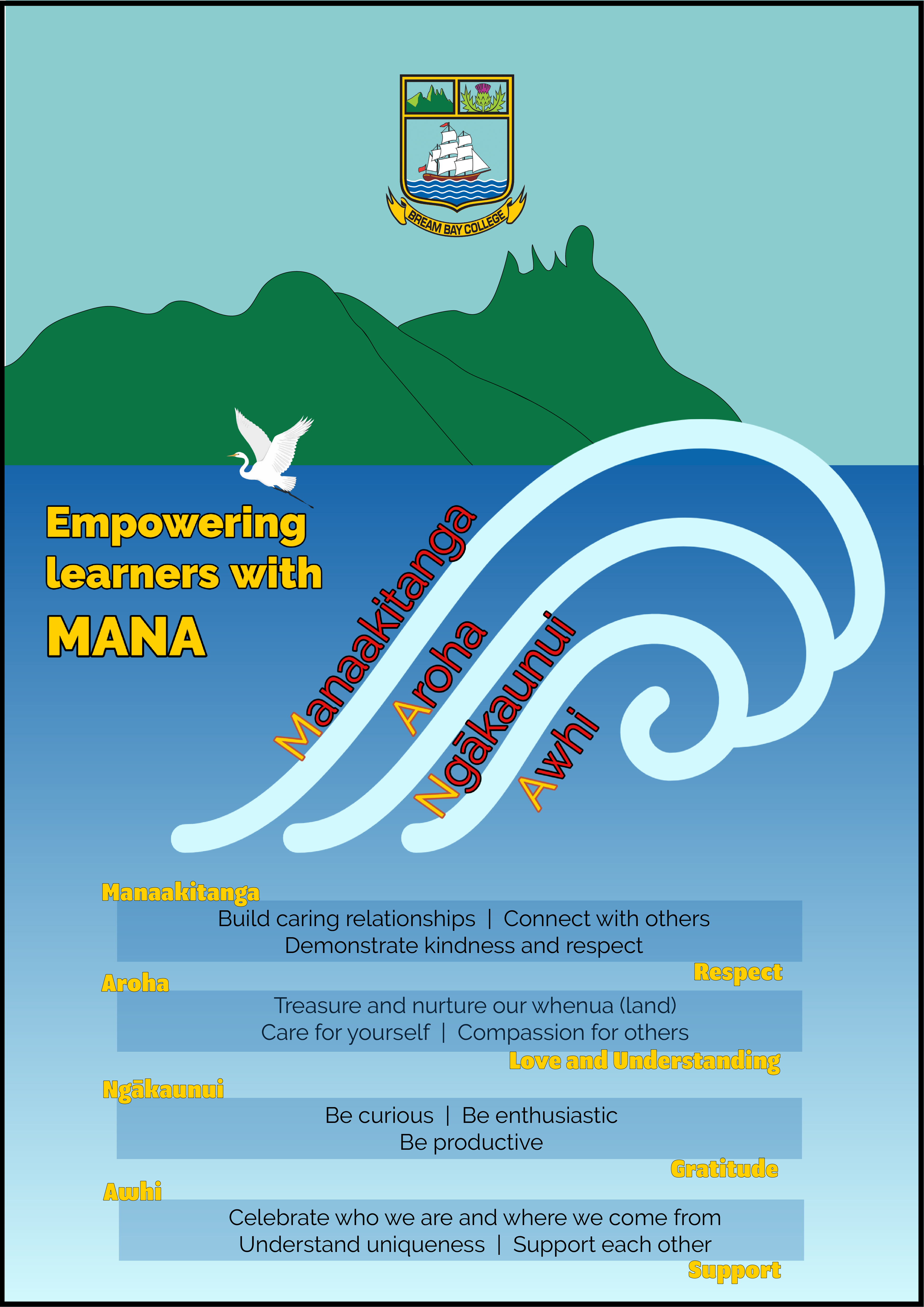
Bream Bay College focuses on creating strong relationships within the College community. Positive relationships and care are important for a good learning environment where deep learning can occur. We use restorative practices to address conflicts and repair harm, in line with our values of accountability and responsibility. It reflects a commitment to our MANA values, a belief in accountability and an acceptance of responsibility for our actions by “making things right”
How can parents assist?
- Listen to your child without judging.
- Support your child, whether they're involved or affected.
- Remember there are multiple perspectives.
- Trust the College and its process.
- If you're unsure, ask College staff for help.
Why Restorative Practices?
Restoring relationships with respect using a proactive problem-solving process. Restorative Practices work in various settings and formats: Minichats, informal conversations, structured conversations, class meetings, or full conferences.
Why conference?
Sometimes, a serious incident needs more attention, and a restorative conference is an option. If families choose not to participate, the situation is handled differently, usually in a traditional way. In a conference, a trained staff member gathers those affected—students, families, staff—when it's decided that this is the best path. Conferences involve respectful talks, attentive listening, and finding solutions for the effects and hurt. An agreement is made by everyone and followed up to ensure completion.The Restorative Script – 5 steps
Tell the story – Establishing understanding
What happened and what were the causes?
How did you become involved?
What were you thinking at the time?
Explore the harm – Developing empathy
Who has been affected?Repair the harm – Taking responsibility
What do you think needs to happen to put things right?Reach an agreement – co-constructing an agreement
How can we make sure this doesn’t happen again?